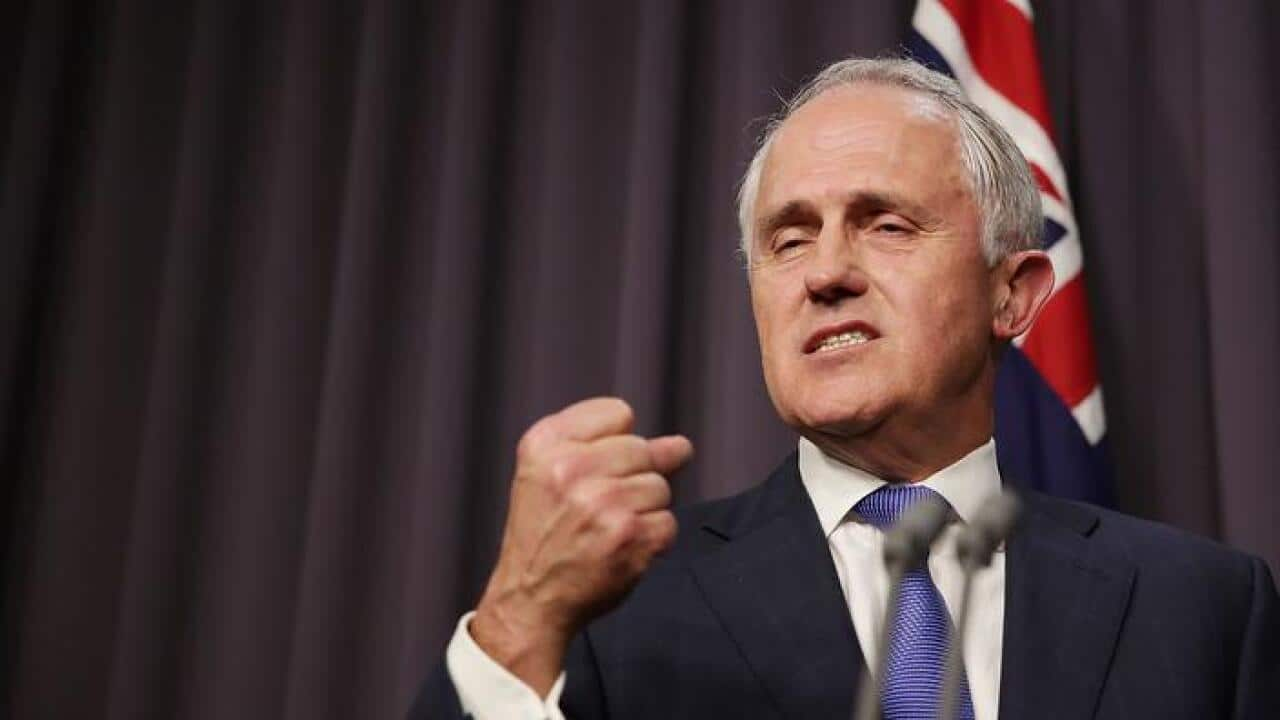Australia’s newest – and 29th – prime minister has a lot of work to do.
Amongst his many new responsibilities will be rebuilding a now divided party, including a party room that likes to be consulted. Liberals say part of the reason Tony Abbott was deposed was a perceived lack of consultation – including “captain’s picks” – and Mr Turnbull convinced his colleagues he’d be better.
He’ll need to show he learned the lessons of his previous time as Liberal leader.
Last night, he already laid out some of the terms of his engagement with the population, saying, “We need to have in this country, and we will have now, an economic vision, a leadership that explains the great challenges and opportunities that we face.
“[A leadership that] describes the way in which we can handle those challenges, seize those opportunities, and does so in a manner that the Australian people understand so that we are seeking to persuade rather than seeking to lecture.”
To do this means being prepared to have a longer conversation. It will mean fighting a 24-hour media cycle that demands new things almost on a daily basis.
After five prime ministers in as many years, it’s fair to conclude that the fast food approach to modern media management isn’t working.
But it is too easy to put the blame on the media. The culture of a quick response to problems, of daily appearances in the media and what has become known has having “announceables” – a consistent stream of things to announce to show you are “doing something” – actually began sometime before the rise of the new media culture.
The former NSW Premier Bob Carr often gets credit, if you can call it that, for the media management which is now an entrenched part of the federal political culture. When he was the state’s premier, he was seen as a savvy media operator, always on the phone to radio stations to deliver message first thing in the morning and, often, refusing to take questions.
That culture morphed into one of winning the daily political battle, instead of focusing on winning the war. The rise of 24-hour TV stations, social media and newspapers which also want new things each day have exacerbated that culture.
“Announceables” may keep your head in the media, but they don’t always make for a coherent narrative. They are the political equivalent of fast food; you feel full for a little while, but are quickly left feeling like you want more.
And after five prime ministers in as many years, it’s fair to conclude that the fast food approach to modern media management isn’t working.
He can learn a thing or two from John Howard, who wasn’t always in the media, but definitely was when he had something to say.
Being prepared to do as politicians did back in the good old days, taking the time to walk people through a problem and a solution, will mean using powers of concentration that are a little rusty in this day and age.
The pressure to do the “new thing a day” will have to be actively resisted and the new PM will also have to resist the push (even desire) to have his own presence in the daily or weekly media cycle.
He can learn a thing or two from John Howard, who wasn’t always in the media, but definitely was when he had something to say.
Doing away with announceables could also help with the need to be consultative inside his own party. Having time and space to consider and discuss policies and actions with his colleagues will help them feel like they are being consulted.
It will not be easy. It will be a test of how serious he is about his “new style of leadership”. If he does it, he will do it at a time when he is being judged on what he does, rather than in comparison to Tony Abbott.
The polls which have judged them side-by-side aren’t a real measure of public support for Mr Turnbull. To some extent, those being polled are considering a false comparison – a known entity (Mr Abbott as PM) against one they don’t know (Mr Turnbull as PM), onto whom they can project their desires and aspirations for a leader.
Prime Minister Turnbull’s work has only just begun. He can expect plenty of it.
Lyndal Curtis is an award-winning political journalist.

